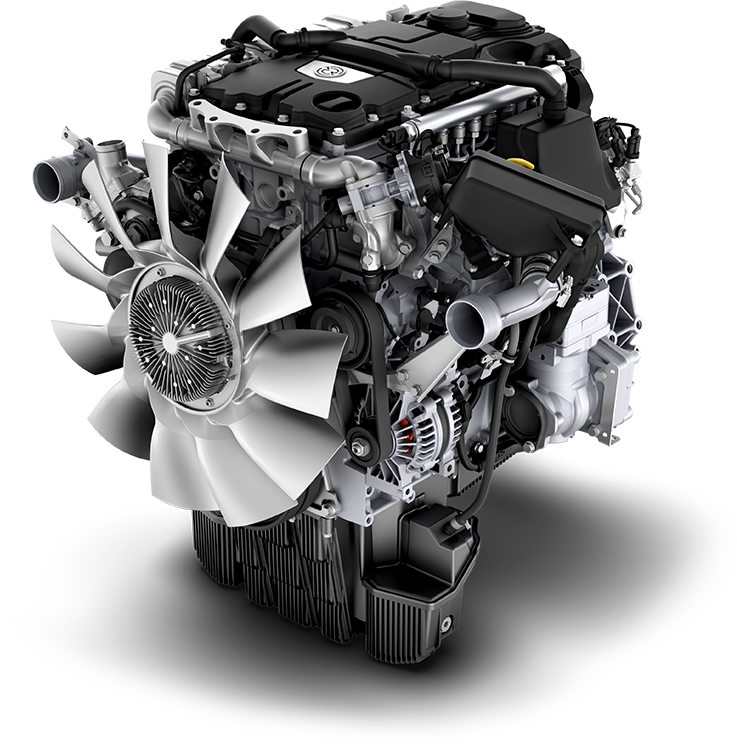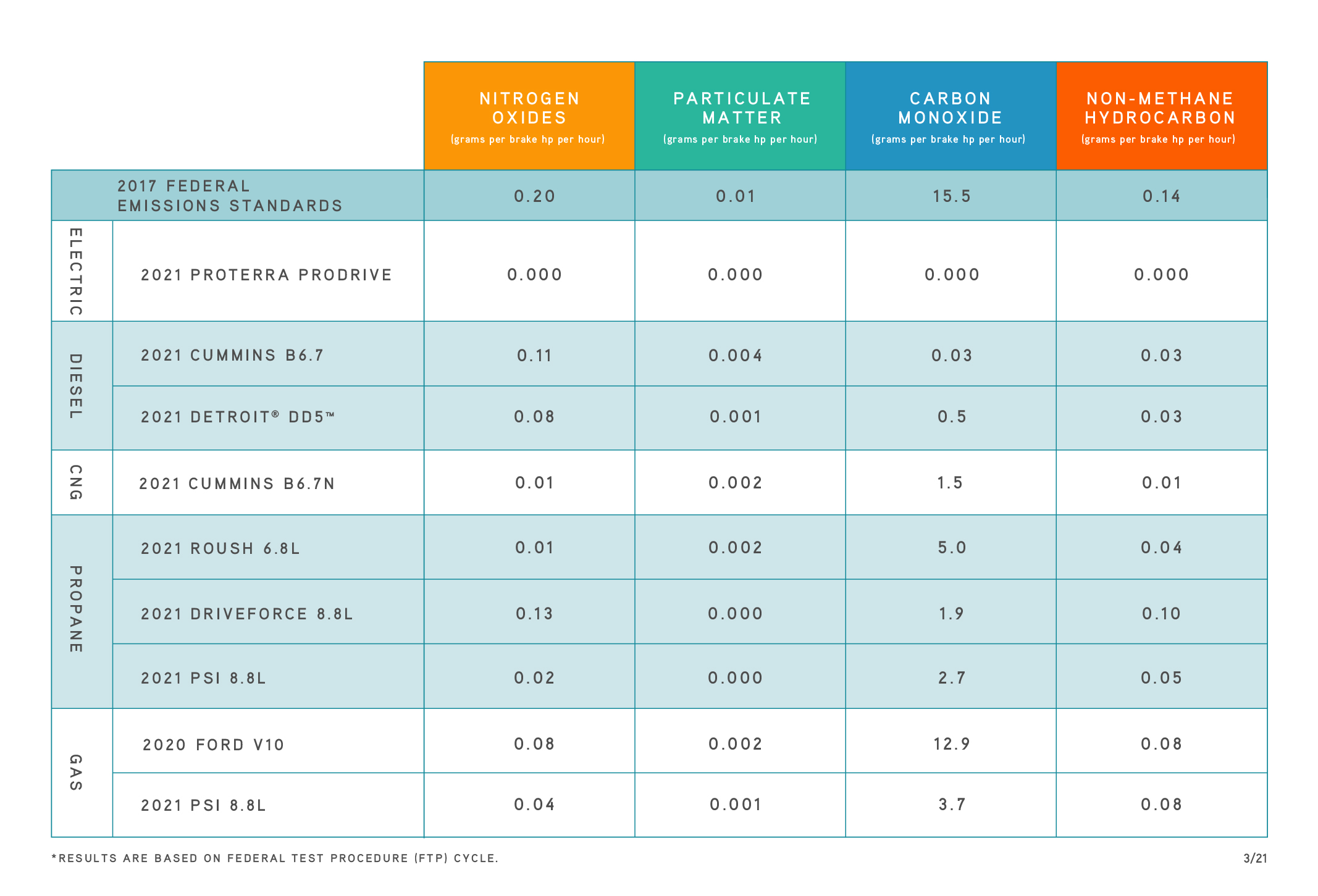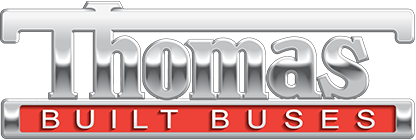
Today’s diesel offers easy maintenance, the highest fuel efficiency and the smallest carbon footprint — beating out propane and gasoline. No wonder most school districts across the United States and Canada choose new diesel for their fleets.
 Thanks to innovative technology, multiple manual regens are a thing of the past and diesel engines are easier to maintain than ever.
Thanks to innovative technology, multiple manual regens are a thing of the past and diesel engines are easier to maintain than ever.
- Variable cam phasing on the Detroit® DD5™ and DD8™ engines, as well as the Cummins’ Stay Warm feature, have solved aftertreatment headaches. Goodbye regen delays!
- The Detroit DD5 and DD8 engines offer the longest service intervals in the industry.
- These advanced engines can go up to 45,000-miles* before needing oil and fuel filter changes.
- Detroit engine service intervals are 3x longer than those for Cummins engines.
- New engine maintenance intervals are “set it and forget it” for once-a-year maintenance.
*Or 12 months or 1,500 hours, whichever comes first.
SEE HOW NEW TECHNOLOGIES MAKE REGEN ISSUES A THING OF THE PAST
 Diesel engines are built to last and are specifically designed for medium-duty use.
Diesel engines are built to last and are specifically designed for medium-duty use.
- Diesel engines can last 15 to 20 years or more.
- Diesel engines last 2-3 times longer than their propane and gasoline counterparts.
- Diesel engines almost never need to be replaced during the life of a school bus.
- Unlike many alternative fuel engines, diesel engines don’t need to be upfitted or replaced multiple times during their lifecycle, saving time, money and hassles.
Learn more about detroit engine technology



- Diesel is the most fuel-efficient engine type on the market.
- Diesel offers up to 50% better fuel economy compared to other similar-size gasoline, propane or compressed natural gas engines.**
- Diesel outperforms other fuels in operating range.
- Diesel buses have better resale value.
- Diesel buses are less expensive to buy.
**Based on usage, mileage, terrain or other factors.
SEE HOW DIESEL SAVES TIME AND MONEY

- Today’s diesel school buses are comparable to — or even cleaner than — propane or gasoline.***
- Clean-diesel emissions are more than 90% cleaner than they were in 2006.
- Thomas Built diesel buses exceed EPA and greenhouse gas standards for particulate matter, nitrogen oxide, carbon monoxide and non-methane hydrocarbon.
- 60 of today’s Saf-T-Liner® C2 school buses produce fewer combined emissions than one school bus from 2002.
- New state-of-the-art engine technology, like that in the Detroit DD5 and DD8 engines, is revolutionizing emissions.
***School bus emissions are based on 2017 Federal Emissions Standards and Federal Test Procedure (FTP) Cycles utilizing 2019 model year engines.
Download the 2021 report
comparing emissions for dieseL and ALTERNATIVE fuel engines
comparing emissions for dieseL and ALTERNATIVE fuel engines
Sign Up to Receive News and Updates*
